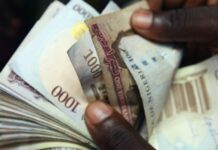The Organised Private Sector in the country shared the view that,,, the Central Bank of Nigeria’s naira redesign policy has contributed to a naira crisis that has driven inflation to record highs. Nigeria’s 21.91 per cent inflation rate for February is the highest in 18 years.
Data from the National Bureau of Statistics revealed that this is the second consecutive month inflation is rising in the year after it fell in December 2022, after an 11-month rise. In January, inflation rose to 21.82 per cent from the 21.34 per cent that was recorded in December 2022.
The NBS, on Wednesday, disclosed that increases in the price of bread, cereal, rent, potatoes, yam, tubers, vegetables, and meat drove inflation up in February.
It said, “In February 2023, the headline inflation rate rose to 21.91 per cent compared to January 2023 head-line inflation rate which was 21.82 per cent.
“Looking at the trend, the February 2023 inflation rate showed an increase of 0.09 per cent points when compared to January 2023 headline inflation rate.”
The national statistics body of the country added, “The contributions of items on a class basis to the increase in the headline index are presented, thus: bread and cereal (21.67 per cent), actual and imputed rent (7.74 per cent), potatoes, yam and other tubers (6.06 per cent), vegetable (5.44 per cent), and meat (4.78 per cent).”
The effect of inflation is more felt in Bauchi (24.59 per cent), Rivers (24.40 per cent), and Ondo (24.27 per cent), where inflation is above the national average.
Sokoto (18.90 per cent), Borno (18.94 per cent), and Cross River (19.62 per cent), recorded the slowest rise in headline y-o-y inflation.
In February, food inflation rose to 24.35 per cent year-on-year basis. Food was more expensive in Kwara as food inflation hit 29.51 per cent, Imo (27.47 per cent), and Lagos (27.42 per cent). It was lowest in Sokoto (18.54 per cent), Jigawa (19.67 per cent), and Yobe (21.89 per cent).
While justifying the naira redesign policy, the CBN’s acting Branch Controller in Ondo State, Mr Giwa Ademola, explained that the “benefits of the currency redesign to the Nigerian economy are enormous given that this policy will help to control inflation, as the exercise will bring the hoarded currency into the banking system, thereby making monetary policy more effective.
“It will also help with better design and implementation of monetary policy as we will have much more accurate data on money supply and monetary aggregates.”
According to the Governor, CBN, Godwin Emefiele, currency management is a key function of the apex bank, and controlling the currency in circulation is key to the success of monetary policies, which includes taming inflation.
While briefing the diplomatic community on recent monetary policy decisions of the CBN at the Ministry of Foreign Affairs in Abuja in February, he said, “We have started to see inflation trending downwards and exchange rates relatively stable.”
Economic experts disagree with the position of the CBN governor. The national Vice Chairman of the Nigerian Association of Small-Scale Industrialists, Segun Kuti-George, stated that the naira redesign policy which has fueled scarcity of the local currency, was responsible for the spike in the country’s inflation rate.
Speaking with The PUNCH, the Kuti-George also faulted the NBS figures, noting that it was not consistent with what is obtainable in the marketplace.
According to him, Nigeria’s real inflation rate should not be less than 50 per cent if properly calculated.
He said, “It is because of the strain in the economy caused by this badly implemented cashless policy.
“I was talking to a woman who runs a local canteen, and she said she used N3000 to buy N17,000. She wanted to pay for garri, and she had to pay N3000 extra for the N17,000. So, the garri that she was supposed to buy for N17,000, she bought for N20,000.
“That is what it means. When she is going to sell it, she will consider the fact that her cost price was N20,000.”











